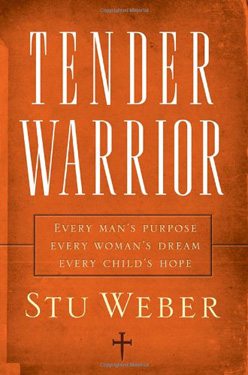Hey, kids. Want to read some cool stuff about love and sex that you might never hear from your folks? Hey, parents. Want to learn how to communicate with your kids about these important topics? Read on!
This article is also available in Spanish. 
Cool Stuff
Psst! Hey, kids! Want to hear some really cool stuff about love and sex that you might never hear from your parents? Listen up! (But . . . how about closing your ears for the next few seconds?)
Hey, parents! Want to learn how to talk to your kids about sex in a way they will understand and relate to? Keep listening.{1}
OK, kids. You can listen again.
“A fulfilling love life. How can I have one? How can I get the most out of sex?” University students worldwide ask these questions. As I’ve spoken on their campuses, I’ve tried to offer some practical principles because I believe both pleasure and emotional fulfillment are important facets of sex. These principles relate to teens, too. Teens of all ages.
Sex is often on our minds. According to two psychologists at the universities of Vermont and South Carolina, 95% of people think about sex at least once each day.{2} You might wonder, “You mean that 5% of the people don’t?”
Why does sex exist? One of the main purposes of sex is pleasure. Consider what one wise man named Solomon wrote. Writing sometimes in “PG” (but not “R-rated”) terms, he said:
Drink water from your own cistern
And fresh water from your own well.
Should your springs be dispersed abroad,
Streams of water in the streets?
Let them be yours alone
And not for strangers with you.
Let your fountain be blessed,
And rejoice in the wife of your youth.
As a loving hind and a graceful doe,
Let her breasts satisfy you at all times;
Be exhilarated always with her love.{3}
Solomon’s ancient love sonnet, the “Song of Solomon,” is one of the best sex manuals ever written. It traces the beauty of a sexual relationship in marriage and is an openly frank description of marital sexual intimacy. You might want to read it yourself. (Would it surprise you to know that it’s in the Bible? You can dog-ear the good parts.)
Another purpose of sex is to develop oneness or unity. Fifteen hundred years before Christ, Moses, the great Israeli liberator, wrote, “For this reason a man shall leave his father and his mother, and be joined to his wife; and they shall become one flesh.”{4} When two people unite sexually, they “become one flesh.”
A third purpose for sex is procreation. That, of course, is how we all got here. You learn that in first year biology, right?
OK, so sex is for pleasure, unity, and procreation. But how can people get the most out of love and sex?
How to Have a Most Fulfilling Love Life
One way not to have a fulfilling love life in marriage is to concentrate solely on sexual technique. There is certainly nothing wrong with learning sexual technique–especially the basics–but technique by itself is not the answer.
The qualities that contribute to a successful sex life are the same ones that contribute to a successful interpersonal relationship. Qualities like love, commitment, and communication.
Consider love. As popular speaker and author Josh McDowell points out, those romantic words, “I love you,” can be interpreted several different ways. One meaning is “I love you if—If you go out with me . . . if you are lighthearted . . . if you sleep with me.” Another meaning is “I love you because—because you are attractive . . . strong . . . intelligent.” Both types of love must be earned.
The best kind of love is unconditional. It says, “I love you, period. I love you even if someone better looking comes along, even if you change, even if you have zoo breath in the morning. I place your needs above my own.”
One young engaged couple had popularity, intelligence, good looks, and athletic success that seemed to portend a bright future. Then the young woman suffered a skiing accident that left her paralyzed for life. Her fiancé deserted her.
This true story—portrayed in the popular film, “The Other Side of the Mountain”—was certainly complex. But was his love for her “love, period”? Or was it love “if” or love “because”? Unconditional love (or “less-conditional”, because none of us is perfect) is an essential building block for a lasting relationship.
Unconditional love with caring and acceptance can help a sexual relationship in a marriage. Sex, viewed in this manner, becomes not a self-centered performance but a significant expression of mutual love.
Commitment is also important for a strong relationship and fulfilling sex. Without mutual commitment, neither spouse will be able to have the maximum confidence that the relationship is secure.
Good communication is essential. If a problem arises, couples need to talk it out and forgive rather than stew in their juices. As one sociology professor expressed it, “Sexual foreplay involves the ’round-the-clock relationship.’”{5}
Why Wait?
After I’d spoken in a human sexuality class at Arizona State University, one student said, “You’re talking about sex within marriage. What about premarital sex?” He was right. I was saying that sexual intercourse is designed to work best in a happy marriage and recommending waiting until marriage before experiencing sex.
This view is, of course, very controversial. You may agree with me. Or you may think I am from another planet, and I respect your right to feel that way. Here’s why I waited.
First is a moral reason. According to the perspective I represent, the biblical God clearly says to wait.{6} Some people think that God wants to make them miserable. Actually, He loves us and wants our best. There are practical reasons for waiting.
Premarital sex can detract from a strong relationship and a fulfilling love life. Too often, it’s merely a self-gratifying experience. After an intimate sexual encounter, one partner might be saying, “I love you” while the other is thinking, “I love it.”
Very often premarital sex lacks total, permanent commitment. This can create insecurity. For instance, while the couple is unmarried, the nagging thought can persist, “If he or she has slept with me, whom else have they slept with?” After they marry, one might think, “If they were willing to break a standard with me before we married, will they with someone else after we marry?” Doubt can chip away at their relationship.
Premarital sex can also inhibit communication. Each might wonder, “How do I compare with my lover’s other partners? Does he or she tell them how I perform in bed?” Each may become less open; communication can deteriorate and so can the relationship. Premarital sex can lessen people’s chances to experience maximum oneness and pleasure. I’m not claiming that premarital sex eliminates your chances for great sex in marriage. But I am saying that it can introduce factors that can be difficult to overcome.
A recently married young woman told me her perspective after a lecture at Sydney University in Australia. She said, “I really like what you said about waiting. My fiancé and I had to make the decision and we decided to wait.” (Each had been sexually active in other previous relationships.) She continued: “With all the other tensions, decisions and stress of engagement, sex would have been just another worry. Waiting ’till our marriage before we had sex was the best decision we ever made.”
Wise words. I waited because God said to, because there were many practical advantages, and because none of the arguments I heard for not waiting were strong enough.{7}
The Vital Dimension
So far we’ve looked at “Why sex?”, “How to have a most fulfilling love life,” and “Why wait?”. Consider now the vital dimension in any relationship.
Powerful emotional factors can make it difficult for teens to wait until marriage for sexual intercourse or to stop having sex. A longing to be close to someone or a yearning to express love can generate intense desires for physical intimacy. Many singles today want to wait but lack the inner strength or self esteem. They may fear losing love if they postpone sex.
Often sex brings emptiness rather than the wholeness people seek through it. As one TV producer told me, “Frankly, I think the sexual revolution has backfired in our faces. It’s degrading to be treated like a piece of meat.” The previous night her lover had justified his decision to sleep around by telling her, “There’s plenty of me for everyone.” What I suspect he meant was, “There’s plenty of everyone for me.” She felt betrayed and alone.
I explained to her and to her TV audience that sexuality also involves the spiritual. One wise spiritual teacher understood our loneliness and longings for love. He recognized human emotional needs for esteem, acceptance, and wholeness and offered a plan to meet them. His plan has helped people to become brand “new persons” inside.{8} He promised unconditional love to all who ask.{9} Once we know we’re loved and accepted, we can have greater security to be vulnerable in relationships and new inner strength to make wise choices for safe living.{10}
This teacher said, “You will know the truth, and the truth will make you free.”{11} Millions attest to the safety and security He can provide in relationships. His name, of course, is Jesus of Nazareth. Though I had been a skeptic, I placed my faith in Him personally my freshman year in college. Through a simple heart attitude, I said, “Jesus, I believe you died and rose again for me. I ask you to enter my life, forgive me, and give me the new life you promised.” He forgave all my flaws—and there were (and are) many of those. He said His own death and resurrection—once I accepted His pardon—erased my guilt.{12} That was great news!
Marriage with Jesus involved can be like triangle with God at the apex and the two spouses at the bottom corners. As each partner grows closer to God, they also grow closer to each other. Life doesn’t become perfect, but God’s friendship can bring a vital dimension to any relationship.
Parents and Kids
A nationwide survey of teens asked the question, “When it comes to your decisions about sex, who is most influential?” Forty-nine percent of teens responding said it was their parents. The next closest response was “Friends” (16 percent). Eleven percent said the media influenced their decisions about sex the most. Only 5 percent said it was their romantic partner.{13} Kids, lots of your peers think that it is important to consider how their parents feel about sex.
And teens feel that talking with their parents about sex can make important sexual decisions easier. In a subsequent national survey, teens overwhelmingly expressed that they could more easily postpone sexual activity and avoid getting pregnant if they could only talk about these matters more openly with their folks.{14}
But there’s a problem. Too many parents are unaware how important what they think about sex is to their teens. Parents often think that their teenagers’ friends are the strongest influence on their teen’s decisions about sex. Yet teens don’t consider their friends as being nearly as influential as parents think they are.{15}
And mom, you are really, really important!
A major report based on two University of Minnesota studies involving national data found that teens having close relationships with their mothers are more likely than teens lacking close relationships with their mothers to delay first intercourse. The report authors note, “previous studies have shown that mothers tend to have a greater influence than fathers on teens’ sexual decision-making.”{16}
What can a parent do to help their teens develop positive, healthy sexual attitudes and behavior? Here are some ideas:
• Develop close, loving relationships with your kids from the time they are young.
• Model the types of behavior and attitudes you wish them to emulate.
• Listen to them and treat them with respect.
• Talk about sex, your own values, and why you hold them.
• Help your teen think through their life goals, including education, and how teenage sexual activity might affect their dreams.
• Discuss what types of media are appropriate for your son or daughter to consume.
Making sexual decisions can be hard for teens today. Parents and teens can help each other by becoming close friends and by communicating. It’s not always easy, but the rewards can be significant.
Notes
1. Parts of this article are adapted from Rusty Wright, “Dynamic Sex: Unlocking the Secret to Love,” Every Student’s Choice, 1996 and Rusty Wright, “Safe Sex?”, Cross & Crescent LXXXI:4, Winter 1994-95, pp. 19-21.
2. Kathleen Kelleher, “Entertaining Fantasies? Don’t Worry, Everyone’s Doing It,” Los Angeles Times, August 15, 1995, E1. She cites Harold Leitenberg of the University of Vermont and Kris Henning, “now at the University of South Carolina Medical School”.
3. Proverbs 5:15-19 NASB.
4. Genesis 2:24 NASB.
5. Emily Dale, Ph.D., Department of Sociology and Anthropology, Illinois Wesleyan University, Bloomington, Illinois, 1975.
6. 1 Corinthians 6:18; 1 Thessalonians 4:3.
7. For a summary of arguments for premarital sex, with responses, see Wright, “Dynamic Sex: Unlocking the Secret to Love,” op. cit.
8. 2 Corinthians 5:17 NLT.
9. John 3:16; 13:34-35; 17:20, 23, 26; 1 John 4:7-21, 5:14-15.
10. Acts 1:8; Ephesians 5:18; Galatians 5:16-24; 1 Corinthians 6:18-20.
11. John 8:32 NASB.
12. Luke 24:44-47; Colossians 2:12-14.
13. “Faithful Nation: What American Adults and Teens Think About Faith, Morals, Religion, and Teen Pregnancy,” The National Campaign to Prevent Teen Pregnancy, September 2001, p. 5; http://www.teenpregnancy.org/resources/data/pdf/keeping.pdf.
14. “With One Voice 2002: America’s Adults and Teens Sound Off About Teen Pregnancy,” The National Campaign to Prevent Teen Pregnancy, December 2002, pp. 2, 26, 27; http://www.teenpregnancy.org/resources/data/pdf/WOV2002_fulltext.pdf.
15. Ibid., pp. 2, 22-23.
16. “Teens’ Closeness With Their Mothers Linked to Delay in Initiation of Sexual Activity, Study Says,” Kaiser Daily Reproductive Health Report, September 5, 2002, http://www.kaisernetwork.org/daily_reports/print_report.cfm?DR_ID=13275&dr_cat=2. The words quoted are those of the Kaiser Report summary of what the University of Minnesota research authors communicated.
This article is adapted with permission from Rusty Wright, “Cool Stuff About Love and Sex,” The Plain Truth, January/February 2004, pp. 17-19.
© 2004 Probe Ministries.



 Another easy way to trash your marriage is to refuse to meet your spouse’s emotional needs. Men and women need different things from their life partners. Dr. Willard Harley discovered and examined a pattern in his excellent book His Needs, Her Needs. Husbands’ top needs, it turns out, are: first of all sexual fulfillment; second, recreational companionship; third, an attractive spouse; fourth, domestic support; and fifth, admiration. Wives, if you want to trash your marriage, ignore his need for sex and that you be there for him in leisure time. Blow off his desire that you look your best and he can be proud that you’re his wife. Make your home as stressful and chaotic as you can, and never, ever tell him what you admire about him.
Another easy way to trash your marriage is to refuse to meet your spouse’s emotional needs. Men and women need different things from their life partners. Dr. Willard Harley discovered and examined a pattern in his excellent book His Needs, Her Needs. Husbands’ top needs, it turns out, are: first of all sexual fulfillment; second, recreational companionship; third, an attractive spouse; fourth, domestic support; and fifth, admiration. Wives, if you want to trash your marriage, ignore his need for sex and that you be there for him in leisure time. Blow off his desire that you look your best and he can be proud that you’re his wife. Make your home as stressful and chaotic as you can, and never, ever tell him what you admire about him.